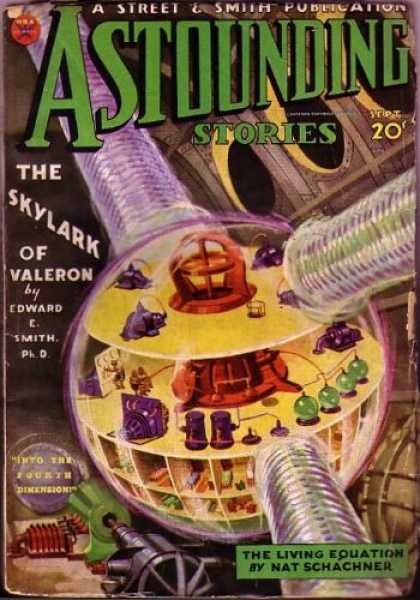|
LITR 4632: Literature of the Future |
Sample Student Final Exams 2011 Essay 2 |
 |
Jennifer Summerlin
A Future
That Cannot Be Read…Or Can It?
In my midterm essay, I introduced the idea that illiteracy is a
noticeable theme in literature of the future.
While I still believe this to be true, I realize now that I was focusing
solely on one type of literacy, traditional literacy.
This is what we think of as simply the ability to read and write.
But is this the only type of literacy we should consider when moving into
the future? A more up to date
definition says “literacy involves a continuum of learning in enabling
individuals to achieve their goals, to develop their knowledge and potential,
and to participate fully in their community and
wider society.” This definition
helps us explore not only reading and writing, but digital and computer literacy
as well. Literature of the future
certainly recognizes the importance of digital literacy, with many of our
stories making the case that it will be more of a necessity than traditional
literacy in the future.
In Burning Chrome, the main characters in the story do not use
traditional literacy, but rely on their ability to understand and manipulate
digital and computer equipment to complete their task.
The story elements of matrix boards,
databases, and subprograms let the reader know right away that to successfully
survive in this high tech world, a more specific literacy would be needed.
With all the cyber language and computer vocabulary used in this story,
you almost have to adopt a type of digital literacy just to be able to read and
understand it.
Likewise, Johnny Mnemonic must be fluent in the same type of digital
literacy. In fact, he becomes a
type of literacy himself, with information being stored in him for others to
retrieve and interpret. In these
cyberpunk stories, Gibson seems to replace the need for basic skills of reading
and writing with what becomes more vital and that is the ability to operate
complex machines. For Johnny, who
is the machine himself, he ultimately develops the skills to operate the
mechanism inside him and finds contentment in his new Lo Tek environment.
He continues to be schooled in this digital literacy as referenced in the
last line of the story that says “It’s educational, too.
With Jones to help me figure things out, I’m getting to be the most
technical boy in town”.
Stone Lives also references this idea that a move to digital literacy is
the wave of the future. When Stone
is asked to give reports on the state of the city and its people, he wonders how
he will do so without the ability to read and write.
He is promptly told that there is no need for those outdated skills
because there are computers that will do the reading and composing for him.
We assume that once
While I still believe illiteracy is an important issue that should be
raised now and in the future, these stories have opened my eyes to a new
direction that literacy is moving in.
Since the purchase of my IPAD, I have realized that I can do almost
everything without much use of my literary skills.
I can have a newspaper, magazine, or book read to me without ever reading
a single word myself and I can send text messages by simply speaking into the
machine and watching the words come up on the screen.
Now, I still use my outdated skills to write letters in longhand and to
read paperback books that I actually hold in my hand, but that is only because I
like to. But I guess when it comes
right down to it, if work is being done and learning is taking place, whether it
be by traditional means or more technological ones, any kind of literacy is
better than none at all.
Reference:
